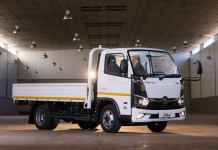This weeks fuel price increase will have a tremendous knock-on effect on the bus industry. The Southern African Bus Operators Association (SABOA) highlights that not only does the 8.6 % diesel fuel price increase (from R14.40 per litre to R15.64 per litre) impact on keeping buses on the road, it also combines with labour cost surges to put the industry under immense cost pressure. Doing the numbers reveals an untenable situation which is burdening bus operators.
As a point of departure, the recent three week industrial strike by organised labour in the bus industry resulted in a 9% wage settlement that created an additional financial burden on bus companies. This extra expense is then combined with higher input costs, lower revenues and within the context of a subdued economy, it results in fewer bus passengers. In addition, the annual subsidy increase via the Public Transport Operations Grant (PTOG) of the Division of Revenue Act (DORA) was only 3,2% for 2018. All these factors are responsible for the unfavourable knock-on effect.
Spiraling costs from the combination of fuel price and labour cost increases
The diesel fuel price in September 2017 amounted to R11,71 per litre for the inland at wholesale price and in October 2018, it was R15.64. The overall fuel cost increase since September 2017, year on year, came up to 34%. In tandem, the labour cost increase for 2018 was 9%. These figures paint a bleak picture of the cost of doing business in the industry.
A typical bus company’s cost structure is made up as follows, according to SABOA:
- Labour cost is at about 40% of total operating costs. As labour costs increased by 9%, it resulted in a 3,6% overall rise in total operating costs.
- Fuel represents about 30% of total operating costs.Since fuel increased by 34%, it resulted in an overall upsurge of 10.2%%.
- These two cost components alone caused an increase of 13.8% in total operating costs to the company.
- The two cost components can explain about 70% of a typical bus company’s cost structure.
- The weak Rand/Dollar exchange rate also significantly negatively affected all new bus purchases, electronics on buses such as ticket machines and computers, as well as spares and equipment.
Public Utility Transport Corporation (Putco) points out a 34% fuel increase since September 2017
Mr Thys Heyns, Executive Director at Putco (Pty) Ltd has this to say about the impact of the fuel price increase for the company, “The diesel fuel price increase of R1,24 per litre that will become effective on 3 October 2018 will cost Putco an additional R42 million per annum. This must be seen against the background of the diesel fuel price having already increased by 34% since September 2017. Putco’s fuel bill increased by R133 million since September 2017 due to several fuel price increases.”
Golden Arrow Bus Services’ fuel bill will increase by approximately R37 million per annum
“The impact of the diesel fuel increase on Golden Arrow Bus Services will escalate the fuel bill by approximately R37 million per annum. Given that the company’s annual usage of diesel is approximately 30 million litres, it is looking at a consequently significant increase in operational costs, as diesel constitutes 30% of operating costs” explains Mr John Dammert, the Corporate Affairs & HR Executive.
Impact of the increase in labour and fuel costs
To illustrate the gravity of the cost implications for the average bus company, we can use an example of a bus ticket that costs R10 – which is the operator’s cost to produce the seat. A basic breakdown of the cost increases for the bus company, amounting to 13.8% for the year, reveals that:
- The ticket is 50% subsidised (R5) and 50% (R5) is paid by the passenger.
- The bus company has to earn R1.38 more per ticket sold to cover its costs (10% increase on
R 10 to cover the 13.8% increase in overall costs). - The Public Transport Operations Grant (the subsidy for the commuter bus industry) increase is 3,2%, therefore 0,16 c/ticket (50% of the ticket value).
- The passenger increase is 6%, therefore 0,30 c/ticket (50% of the ticket value).
- The overall increase is therefore 46c/ticket – leaving the operator short of 92c/ticket.
The impact of the latest fuel increase is devastating to the industry. Most companies have already increased their passenger fares in 2018 and will have major difficulty in doing so again. This is especially so in the light of the very tough financial situation that many consumers find themselves in and the poor performance of the South African economy. Yet, bus companies will in all likelihood be forced to pass on this increase to passengers as the magnitude of the increase threatens the financial sustainability of companies and their ability to render service to the commuting public.















